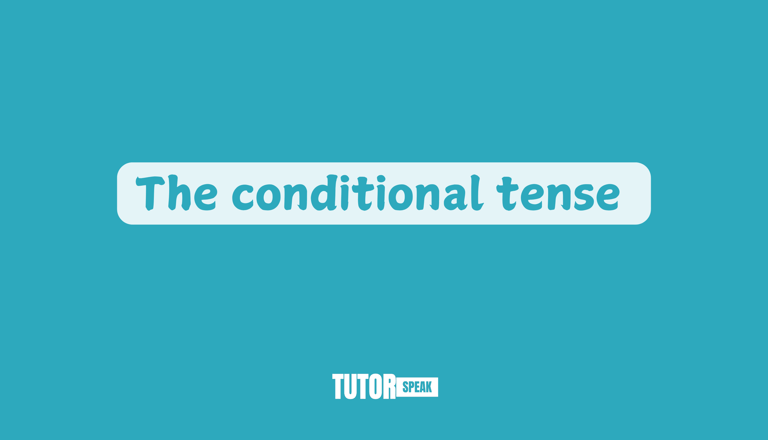Understanding the conditional tense
The conditional tense is used to express actions or events that depend on certain conditions. There are several types of conditional sentences, each serving a different purpose. Below is an explanation of the key types of conditionals, along with examples and exercises to help you understand and practice them.
TutorSpeak
12/9/20243 min read


The conditional tense
The conditional tense is used to express actions or events that depend on certain conditions. There are several types of conditional sentences, each serving a different purpose. Below is an explanation of the key types of conditionals, along with examples and exercises to help you understand and practice them.
Types of Conditional Sentences
1. Zero Conditional (Real Condition)
Form: If + present simple, present simple
Use: Describes general truths, facts, or situations that are always true.
Example:
If you heat water to 100°C, it boils.
2. First Conditional (Real Future Condition)
Form: If + present simple, will + base verb
Use: Describes a real possibility or situation in the future that is likely to happen if a certain condition is met.
Example:
If it rains tomorrow, I will bring an umbrella.
3. Second Conditional (Unreal Present or Future Condition)
Form: If + past simple, would + base verb
Use: Describes an unreal or hypothetical situation in the present or future, something that is unlikely or impossible.
Example:
If I were rich, I would travel around the world. (Note: "were" is used for all subjects in hypothetical situations.)
4. Third Conditional (Unreal Past Condition)
Form: If + past perfect, would have + past participle
Use: Describes a past situation that did not happen, often used for regrets or to imagine different outcomes.
Example:
If I had studied harder, I would have passed the exam.
5. Mixed Conditional (Combination of Second and Third)
Form: If + past perfect, would + base verb (or other combinations)
Use: Describes a situation where the condition in the past has an effect on the present or future.
Example:
If I had taken that job, I would be living in New York now. (Past action affecting the present.)
Exercises
Exercise 1: Fill in the blanks with the correct form of the verb (Zero, First, Second, or Third Conditional):
If she __________ (study) harder, she __________ (pass) the test.
If you __________ (be) more careful, you __________ (not, break) the glass.
If I __________ (be) you, I __________ (take) that opportunity.
If he __________ (not, miss) the bus, he __________ (arrive) on time.
If it __________ (rain) tomorrow, I __________ (stay) home.
If they __________ (know) about the meeting, they __________ (attend).
If I __________ (have) enough money, I __________ (buy) a new phone.
If we __________ (leave) earlier, we __________ (not, be) late.
If I __________ (not, go) to the party last night, I __________ (not, meet) so many new people.
If I __________ (win) the lottery, I __________ (travel) around the world.
Exercise 2: Choose the correct conditional form for each sentence:
If you (study / studied) harder, you (will pass / would pass) the exam.
If I had known about the party, I (would have gone / will go).
If it (rains / rained) tomorrow, I will stay home.
If we (had left / leave) earlier, we (wouldn’t have been / wouldn’t be) late.
If I (am / were) you, I would go to the concert.
If you (eat / ate) too much, you (will feel / would feel) sick.
If I (had known / know), I would have helped you.
If you (take / took) the bus, you will arrive on time.
If he (has / had) studied more, he (would have passed / would pass) the exam.
If we (weren’t / aren’t) so tired, we would go out.
Exercise 3: Write conditional sentences based on the prompts:
(If / I / win) the lottery, I __________ (travel) the world.
(If / it / be) sunny, we __________ (have) a picnic.
(If / you / work) harder, you __________ (achieve) your goals.
(If / I / know) the answer, I __________ (tell) you.
(If / he / study) more, he __________ (understand) the subject better.
Exercise 4: Correct the mistakes in the following sentences:
If I would have known about the meeting, I would attend it.
If she studied harder, she will pass the test.
If they would have arrived earlier, they will not miss the train.
If I were you, I will speak with my manager.
If we would have left on time, we wouldn’t be late.



